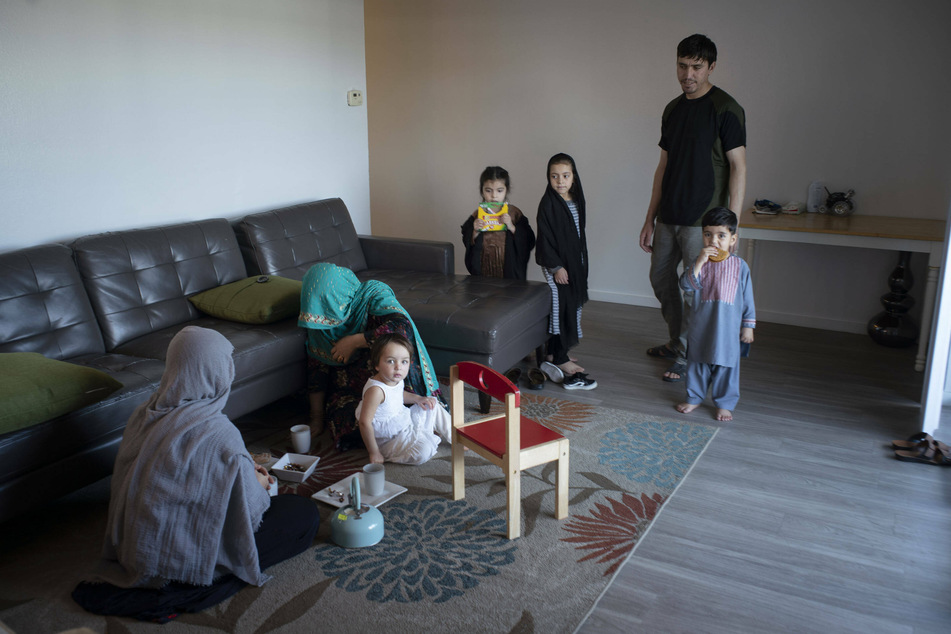Afghan evacuees left in legal limbo after US evacuation
Washington DC - Roughly 36,000 Afghans who were evacuated from their country after the Taliban takeover in August lack a direct pathway to permanent residency in the US, according to a new Department of Homeland Security (DHS) report to Congress.

The evacuees, who have mostly been relocated to the US, include extended family members of Afghans in line for special immigrant visas, reserved for Afghans who directly assisted the US military and diplomatic mission during the 20-year conflict.
The group also includes vulnerable Afghans who are likely to face risk under Taliban rule but who don’t qualify for special immigrant visas under the narrow parameters of the program.
These evacuees received temporary humanitarian parole when they entered the US – a status granted to immigrants without visas for pressing humanitarian reasons – but can only attain legal permanent residency if they apply for asylum through the traditional system, which is beset by backlogs.
Congress ordered the January 28 report in a September supplemental government funding law that provided billions for the government’s resettlement effort, dubbed Operation Allies Welcome. A copy of the report was released by the Lutheran Immigration and Refugee Service (LIRS), a major resettlement group.
LIRS has pushed Congress to pass legislation to make Afghans living in the US under humanitarian parole eligible for lawful permanent residency.
"The report highlights the troubling reality that tens of thousands of Afghans find themselves in legal limbo, lacking a direct path to permanent residency in the US," Krish O’Mara Vignarajah, president of LIRS, said in a statement.
"The broad use of humanitarian parole and its temporary nature underscore the need for legislative action to provide a pathway to permanent protection."
Delayed report reveals scale of problem

The report details the immigration statuses of more than 80,000 Afghans flown out of the country during the chaotic military withdrawal, including those without a direct pathway to permanent protection. Another group of nearly 37,000 are in line for special immigrant visas, a complex application process that can take months.
Lawful permanent residents, special immigrant visa holders, and Afghans who have been referred for the traditional US refugee admissions program make up smaller groups within that total.
The report, which was due within 60 days of the September law’s enactment, comes after multiple Republican lawmakers called attention to the delay. Earlier this month, the ranking members of six Senate committees and subcommittees with jurisdiction over the withdrawal called the report’s delay "unacceptable."
"This information is necessary for Congress to perform its constitutional oversight duties, which include an understanding of the composition of the Afghan evacuee population located in the United States and any potential national security concerns," the senators wrote in a letter to Homeland Security Secretary Alejandro Mayorkas.
Operation Allies Welcome has so far received two major tranches of funding: $6.3 billion in the September legislation and another $7 billion under another stopgap spending bill signed into law in December.
The DHS report sent Friday to Congress includes details on how much funding has so far been used by various government agencies. The Department of Health and Human Services, whose primary role in the mission involves reimbursing states for refugee-related expenses after they are resettled, spent nearly $700 million.
Meanwhile, the Defense Department, responsible for housing Afghan evacuees awaiting resettlement on domestic military bases, put up $1.8 billion, while the State Department spent $865 million.
Cover photo: IMAGO / ZUMA Wire

